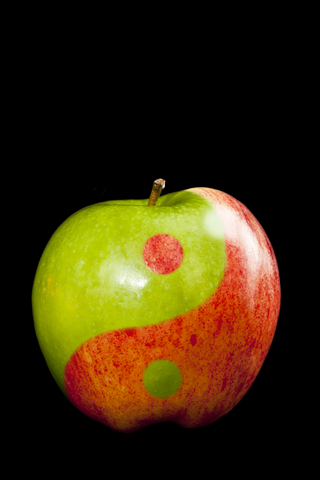I’m sure that, as you have been reading, you see that acupuncture, having been developed in China and other Asian cultures, has a distinctively Eastern way of looking at the healing process that is different from the more familiar Western perspective of medicine. Since it was introduced to the United States and other Western countries, teachers, writers, scientists, researchers and practitioners have attempted to reconcile the East/West differences.
In hospitals and clinics, Western Medicine practitioners are now performing research experiments using acupuncture in an effort to understand the process in Western terms. They have come up with a few theories that are not identical to Eastern thinking but don’t exclude the alternative explanations. From the Western point of view, developed from numerous studies, acupuncture has been found to have the ability to alter various biochemical and physiological conditions, thereby promoting healing.
Some of the physiological effects observed by doctors in their research studies include increased circulation of blood and decreased inflammation. Pain relief has been well studied. For example, research into acupuncture’s ability to reduce pain has shown that needles can cause a change in the way that the brain perceives and processes pain, thereby having a desirable effect – less pain.
Studies describe how acupuncture increases the body’s natural pain-killing chemicals, endorphins, which are 200 times more potent than morphine. Endorphins also affect the hormonal system and this reaction explains why acupuncture can work equally well for problems that seem to have nothing in common, such as back pain and fertility. Acupuncture has also been shown to stimulate the body to produce a chemical compound called adenosine, a painkiller your body manufactures when you are injured.
Acupuncture isn’t just useful for circulation, decreased inflammation and pain relief; mental health benefits have also been found. Acupuncture regulates serotonin which has repeatedly been shown to positively affect your mood. This list briefly touches on the results from the ever-expanding Western research into the effects of acupuncture.
New studies are reported daily and they add to the ever increasing body of knowledge about how acupuncture works (from a Western point of view). Articles regularly appear in mainstream journals that describe studies conducted in the best hospitals. It is important to have the effectiveness of acupuncture demonstrated in labs at top rated U.S. hospitals because experimental research will certainly lead to the treatment becoming accepted and available to everyone who wants it.
If you want to read more about studies as they are published, please feel free to check my blog, I provide summaries, links, and other information as it becomes available. I have also included information at the end of the book on several research studies.



Comments 1
Although the media may be partially to blame when it comes to the Western World's "negative" outlook on Acupuncture, I truly believe that the difference in philosophies between East and West also play a major contributing factor. <br /><br />One thing I notice with Western Medicine is the idea of mind/body separation and how treating an illness in the West is to treat a specific